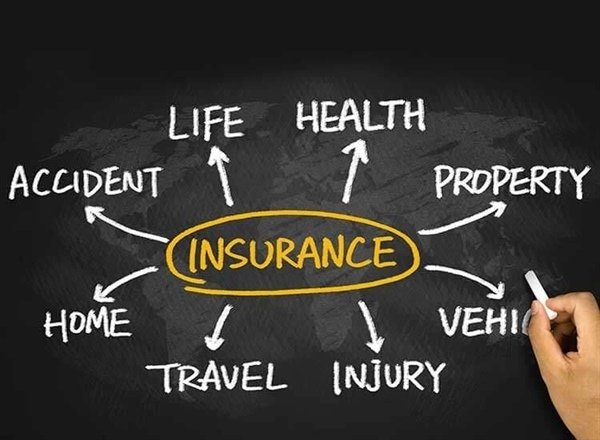WHAT IS 'INSURANCE'?
''INSURANCE''

What is 'Insurance'
Insurance is a contract, represented by a policy, in which an individual or entity receives financial protection or reimbursement against losses from an insurance company. The company pools clients' risks to make payments more affordable for the insured.
Insurance policies are used to hedge against the risk of financial losses, both big and small, that may result from damage to the insured or her property, or from liability for damage or injury caused to a third party.
What is 'Breaking Down Insurance’
There are a multitude of different types of insurance policies available, and virtually any individual or business can find an insurance company willing to insure them, for a price.
The most common types of personal insurance policies are auto, health, homeowners, and life. Most individuals in the United States have at least one of these types of insurance, and car insurance is required by a law.
Businesses require special types of insurance policies that insure against specific types of risks faced by the particular business. For example, a fast food restaurant needs a policy that covers damage or injury that occurs as a result of cooking with a deep fryer.
An auto dealer is not subject to this type of risk but does require coverage for damage or injury that could occur during test drives.
There are also insurance policies available for very specific needs, such as kidnap and ransom (K&R), medical malpractice, and professional liability insurance, also known as errors and omissions insurance.
Insurance Policy Components
When choosing a policy, it is important to understand how insurance works. Three important components of insurance policies are the premium, policy limit, and deductible. A firm understanding of these concepts goes a long way in helping you choose the policy that best suits your needs
A policy's premium is its price, typically expressed as a monthly cost. The premium is determined by the insurer based on your or your business's risk profile, which may include creditworthiness. For example, if you own several expensive automobiles and have a history of reckless driving, you will likely pay more for an auto policy than someone with a single mid-range sedan and a perfect driving record. However, different insurers may charge different premiums for similar policies; so, finding the price that is right for you requires some legwork.
The policy limit is the maximum amount an insurer will pay under a policy for a covered loss. Maximums may be set per period (e.g., annual or policy term), per loss or injury, or over the life of the policy, also known as the lifetime maximum. Typically, higher limits carry higher premiums. For a general life insurance policy, the maximum amount the insurer will pay is referred to as the face value, which is the amount paid to a beneficiary upon the death of the insured.
The deductible is a specific amount the policy-holder must pay out-of-pocket before the insurer pays a claim. Deductibles serve as deterrents to large volumes of small and insignificant claims. Deductibles can apply per-policy or per-claim depending on the insurer and the type of policy.
Policies with very high deductibles are typically less expensive because the high out-of-pocket expense generally results in fewer small claims. In regards to health insurance, people who have chronic health issues or need regular medical attention should look for policies with lower deductibles. Though the annual premium is higher than a comparable policy with a higher deductible, less expensive access to medical care throughout the year may be worth the trade-off.
TYPES OF INSURANCE

1.LIFE INSURANCE
Insurance that pays out a sum of money either on the death of the insured person or after a set period.
2.HEALTH INSURANCE
HEALTH INSURANCE is a type of insurance coverage Health insurance that covers the cost of an insured individual's medical and surgical expenses...... Depending on the type of health insurance coverage, either the insured pays costs out of pocket and is then reimbursed, or the insurer make payments directly to the provider.
3.PROPERTY INSURANCE
What is 'Property Insurance' Property insurance is a policy that provides financial reimbursement to the owner or renter of a structure and its contents in the event of damage or theft. Property insurance can include homeowners insurance, renters insurance, flood insurance and earthquake insurance.
4.VEHICLE INSURANCE
Vehicle insurance (also known as car insurance, motor insurance or auto insurance) is insurance for cars, trucks, motorcycles, and other road vehicles.
5.ACCIDENT INSURANCE
Accident insurance helps you pay for the medical and out-of-pocket costs that you may incur after an accidental injury. This includes emergency treatment, hospital stays, and medical exams, and other expenses you may face, such as transportation and lodging needs.
6.TRAVEL INSURANCE
Travel insurance is insurance that is intended to cover medical expenses, trip cancellation, lost luggage, flight accident and other losses incurred while traveling, trekking and many more.
7.HOME INSURANCE
Homeowners insurance is a form of property insurance that covers losses and damages to an individual's house and to assets in the home. Homeowners insurance also provides liability coverage against accidents in the home or on the property